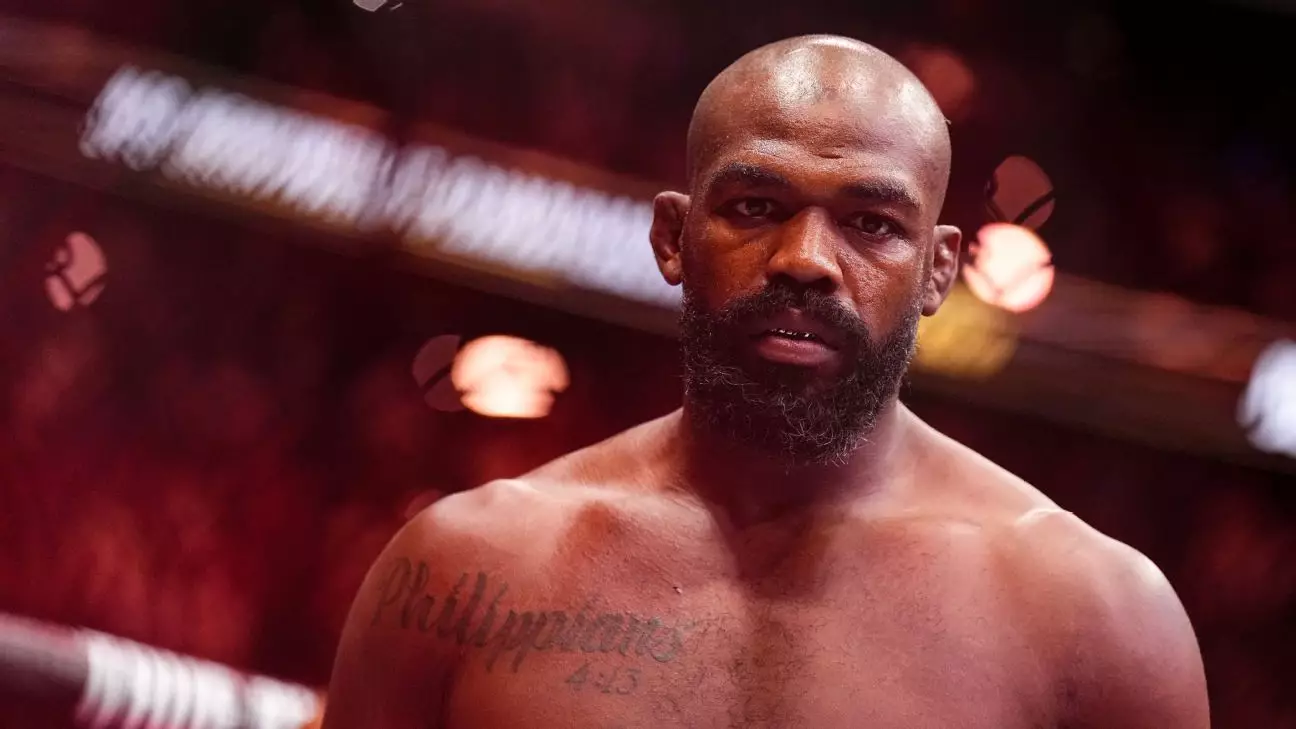When Jon Jones announced his retirement from mixed martial arts following UFC Fight Night in Baku, Azerbaijan, the atmosphere felt devoid of excitement. Dana White, the UFC’s CEO, stood before the media with an unmistakable sense of disappointment etched across his face. Just months ago, Jones was lauded as the best pound-for-pound fighter in the world, but his decision to retire left many scratching their heads. Considering his storied, tumultuous history, should fans truly be surprised by the way Jones exited the sport? Furthermore, is this genuinely the end of his complicated legacy, or merely another chapter in a narrative defined by self-serving decisions?
Jones has earned a reputation for being the most egocentric fighter in UFC history—a self-interest that has, paradoxically, fueled his success in the cage while alienating many outside of it. His abrupt retirement not only dashed hopes for a monumental heavyweight title unification fight against Tom Aspinall but also followed a pattern wherein he picked and chose his battles, seemingly without regard for the sport’s hierarchy or the expectations of fans and promoters alike. This particular scenario underscores the paradox of Jon Jones; he is both an incredible athlete and an incredibly selfish individual.
Choosing Ego Over Excitement
While fans and analysts alike were eagerly anticipating Jones vs. Aspinall, the fighter opted instead to pursue a more palatable match-up against the aging Stipe Miocic. The choice reveals a great deal about Jones’s psyche: instead of challenging himself against an emerging heavyweight talent, he chose a fight that, while respectable, serves more to fortify his legacy on paper than to further his status as a competitor. Were the media and UFC executives right to bet on the fight with Aspinall, or was Jones simply indulging in the kind of reckless avarice that has characterized his career?
Jones’s behavior is a testament to a remarkable characteristic: his ability to prioritize his own legacy over the livelihood of others in the sport. The UFC has consistently supported him through personal scandals, including a notorious felony charge for a hit-and-run incident in 2015. While his talent has earned him unwavering loyalty from the organization, many have failed to recognize the emotional toll such behavior has on teammates and fellow fighters. In the world of MMA, there’s often a delicate balance between self-preservation and community responsibility, yet Jones has chosen the former.
The Cost of Self-Interest
The repercussions of Jones’s selfishness extend beyond individual fighters and into the very fabric of mixed martial arts promotion. When he infamously turned down a last-minute fight offer against Chael Sonnen, effectively causing the cancellation of UFC 151—the first-ever cancelation of a UFC pay-per-view—he demonstrated a glaring disregard for the collective effort of other fighters anxious to compete. Dana White publicly condemned Jones’s decision, labeling it selfish and detrimental to the entire roster of fighters, coaches, and teams involved. This kind of self-centered decision-making has endured as a recurring theme throughout Jones’s career.
Moreover, the uncertainty surrounding Jones’s future continues to cast a long shadow. He has masterfully crafted an image of invincibility and greatness, yet the relative lack of fights over the last decade begs the question: are we witnessing the end of an era or simply the next strategic maneuver in an ongoing game of chess? As fans eagerly seek that high-stakes matchup with another elite fighter, Jones manages the narrative, lowering expectations while simultaneously positioning himself to return on his own terms.
Legacy in Question
As the dust settles over Jones’s retirement, a myriad of fans and analysts alike ponder what this means for his future and the competition landscape. Will we ever see him return? If history is a guide, Jones has always been adept at leveraging negotiations during moments of uncertainty—and retirement is perhaps the best card he can play. He has continuously operated under a cloak of control, directing discussions that paint him in the best light while leaving fans and opponents alike guessing.
Ironically, while his selfishness has garnered criticism, it has also been a cornerstone of his success. The duality of Jon Jones—athlete and entrepreneur, competitor and manipulator—invites us to reconsider conventional definitions of greatness. The legacy of a fighter who has both amazed and disappointed will continue to provoke debate for years to come. As we analyze the broader implications of his career, it seems undeniable that Jon Jones’s unique blend of genius and egotism will forever change the MMA landscape, making him a polarizing yet undeniably impactful figure in sports history.


Leave a Reply